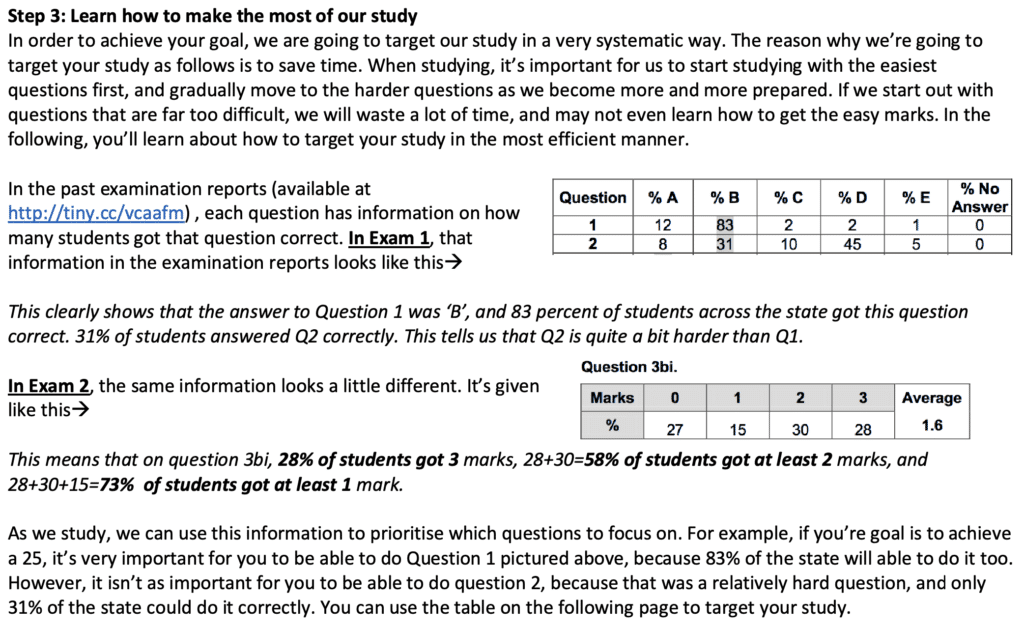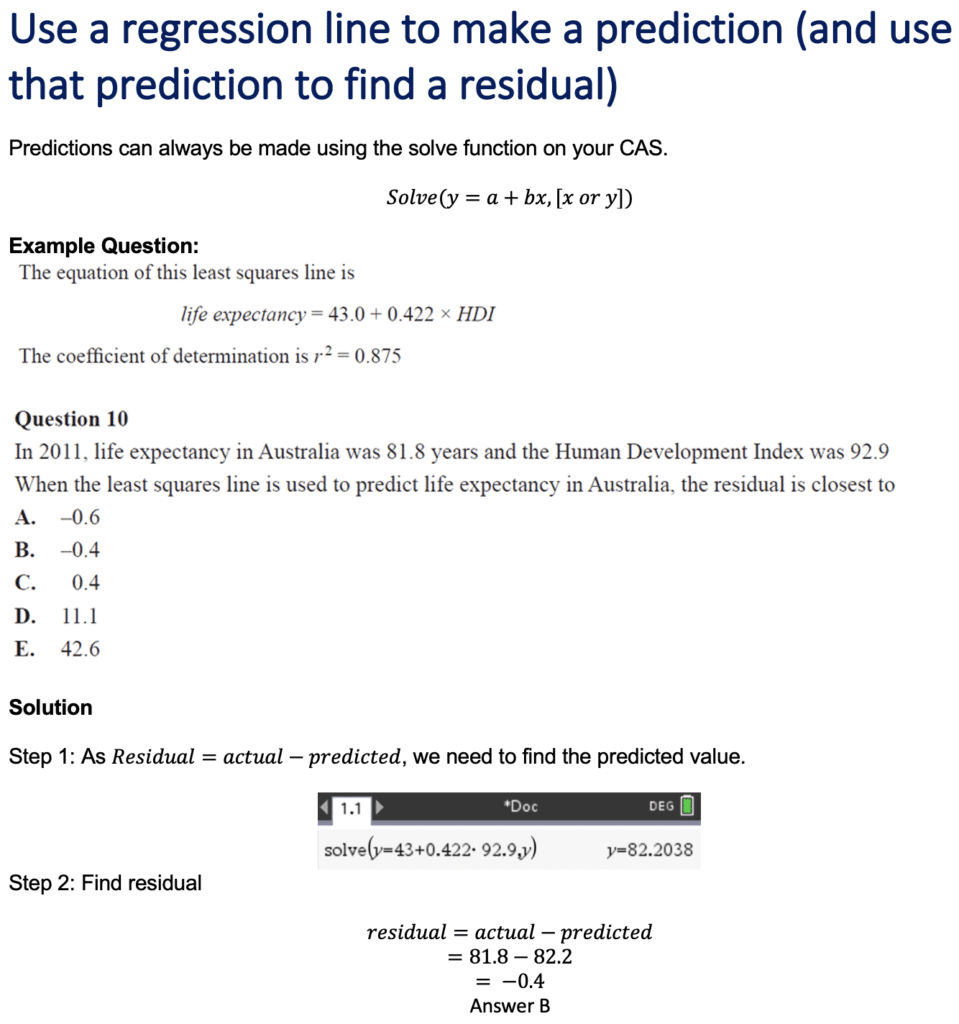This post appeared first on Ollie's EdThreads

Year 12 results came out this week. Year 12 is the final year of schooling in Australia, so these are the results that influence students' future career pathways and opportunities.
It's always a nervous time for teachers. How did our classes go? Did our teaching and pastoral strategies have the impact that we'd hoped? It can be a really heartening and exciting day for some teachers, and can be disheartening for others.
Luckily for myself and the team of Further Maths teachers at my school, we had a happy day. The median result of all students across our five classes was the best that it's ever been for the subject at our school, and blew us all away a little bit to be honest!
But that isn't the most interesting thing to me. The most interesting thing is trying to work out what it might have been that led to our students, even those who started furthest behind, doing really well.
In reflecting with the team, our conclusion was shared: The power of a collective approach.
Over the past few years, we've really focused on aligning our teaching approaches, resources, and assessments. This is a journey that was started by our head of department about five years ago, and it's taken place through shared curriculum documents, success criteria, quizzes and tests. Building on this foundation, this year we implemented three collective initiatives that we feel helped to drive achievement even higher. Here are those three initiatives:
- Starters for every lesson, consisting of 4 to 5 past exam questions
- Weekly exam packs that we started the students on about two months out from the final exam
- A consolidated set of study notes, explicitly outlining the preferred approach to approach the vast majority of questions that students would likely encounter, with tips, tricks, and advice to support them too
Here are some of the benefits of these initiatives:
Starters: By beginning every lesson with a focused activity and rapid feedback, we increased the amount of on-task time, and it also helped with establishing a calm and productive start to each lesson
Exam packs: Subject scores in our state sit on a range from 0 to 50. We usually tell students that a good rule of thumb is for them to do the same number of past exam papers as the score that they're aiming for. Alas, each year there are some students who become demotivated during study period, and barely do any past exams at all. By starting exam packs 2 months out (modified initially to omit content not covered as yet), all students did at least 10 or so full past papers at a minimum, and with supplementary (harder) exam packs, our higher achievers were able to be stretched even more. Self-marking with a structured approach (see this podcast)
Here’s an example of those modification notes demonstrating how students can focus their study:


Study notes: There are three main benefits to a consolidated set of study notes. Firstly, they force teachers to talk about the nitty gritty of teaching and come to agreements about ways of teaching specific skills. This is itself is invaluable professional development, and means that the most effective approaches are used in more classes (Sometimes this entails compromises and disagreements, but as Patrick Lencioni says, ‘Disagree and commit'). A flow on benefit from this consolidated approach is that if students from different classes are studying together or helping each other (as often happens), they're starting from the same foundation, and they can genuinely help each other, rather than confusing each other with a mismatch of techniques. Finally, these notes included many fully worked examples, so students who missed classes, or who forgot, could catch up. And many students even worked ahead with the aid of the guidance in these study notes.
Here’s an example of what those study notes looked like for one of the hundred plus skills outlined in the text:

It would have been a massive undertaking to try to create all of these resources as a single teacher acting alone. Further, we wouldn't have been able to gain the benefit of all of the discussions along the way, including the often fierce debates about teaching approaches for specific skills. To the whole team, this year's results are a compelling example of the power of a collective approach to teaching.
You are reading an instalment of EdThreads, an (aspirationally) weekly email on all things teaching and learning. Subscribe and view all back issues here
Articles and Resources
The discussion/group work to practice ratio matters, but it matters differently for different subjects. For example, in one study: When maths teachers allocated more time than average to ‘practice & assessment', students tended to learn more. But, when English teachers allocated more time to whole class discussion and group work, students tended to learn more. Read more from Peps Mccrea here.
Cool article from @BarrenCode on using free AI to learn foreign languages.
Trying to embed Instructional Coaching in your school? This article demonstrates the importance of getting it into the timetable!
Good to see Cognitive Load reaching wider audiences (but I'm not sure what cowboy toads have to do with it!)
Great thread on improving assessment from @_TimSpencer_ and @FearnhillSchool
Tutoring has been lauded as a great solution to so many problems. But what does the evidence say? Here's a good summary from Michael Pershan.
More from Michael Pershan. This is probably my fave takeaway from the week, a deep dive into the teaching of addition facts. NECESSARY reading for maths teachers!
For an excellent guide covering what Instructional Coaching is, a summary of the research evidence for Instructional Coaching, guidance for how to set up coaching in a school, advice on how to select and train great coaches, and more, check out the Steplab Beginner's Guide to Instructional Coaching.
Quote:
“Being a professional is doing what you love doing when you don't feel like doing it” – Julius Irving